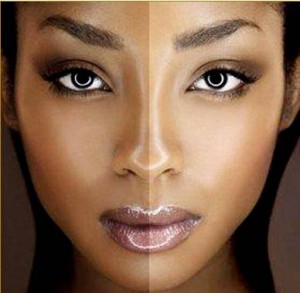
The use of skin lighting products is a controversial topic in African-American communities, but its use is a worldwide issue — from Mumbai to Japan and all throughout Africa and the West Indies, people want to be light-skinned. Additionally, skin lighting crosses gender lines, so it’s not just stereotypically a women’s issue.
Think back to last year’s controversy surrounding Jamaican dancehall artist, Vybz Kartel, who bragged about his lighter “new image,” likening his transformation to lighter skinned people’s desire to tan:
“You can expect the unexpected. I feel comfortable with black people lightening their skin. They want a different look. It’s tantamount to white people getting a sun tan.”
But now new research conducted by Food and Drug Administration has unearthed the not-so-hidden dangers of beauty products marketed as skin lighteners. That’s where the mercury comes in: It blocks production of the skin pigment melanin. But mercury is also a potent toxin that can lead to neurological symptoms and birth defects.
Testing by state health departments in Minnesota, Texas and elsewhere found some products had levels of mercury tens of thousands, or more, higher than the legal limit.
Unfortunately, this has been going on for a long time.
 According to NPR, the FDA’s national health fraud coordinator, Gary Coody, the agency has been fighting mercury-containing cosmetics for years.
According to NPR, the FDA’s national health fraud coordinator, Gary Coody, the agency has been fighting mercury-containing cosmetics for years.
The latest warning comes after several states saw an uptick in cases of mercury poisoning related to these products.
“We just felt like it was a good time to get information out to consumers,” Coody said. “They seem to be resurging in popularity.”
Coody said the products usually show up in communities with a strong cultural association between beauty and light-colored skin.
CLUTCH has extensively reported on the issue of skin lightening in black communities, detailing the issues lots of people in the disporia have with skin color.
Mercury has long been an ingredient in traditional skin-lightening treatments, so — after the FDA does its job and rids these products of mercury — conversations must continue to figure out why humans are still chasing The Bluest Eye.







Wow. I wonder if fade creams (ones intended for spot treatment and not lightening your entire complexion) pose the same threat.
There are many products that contain natural ingredients that will not harm your skin.
Just like about any skincare product in the market, some skin lightening creams and lotions are made with high quality or low quality ingredients. Buy original, read the label, follow directions for use, do not abuse the by over doing it and most likely you’ll be alright.